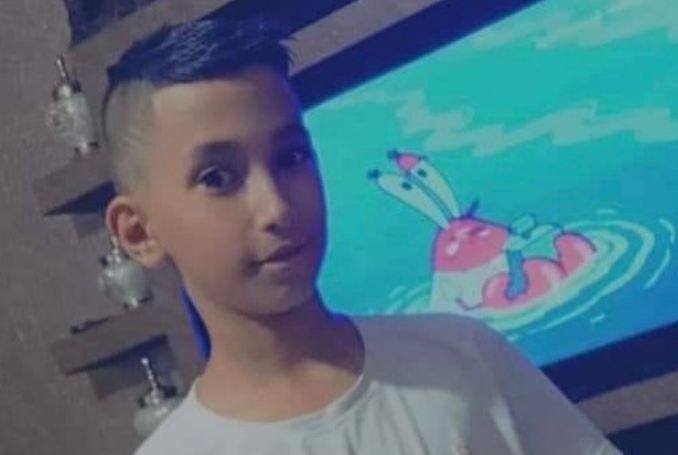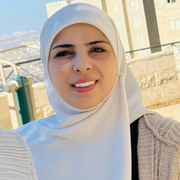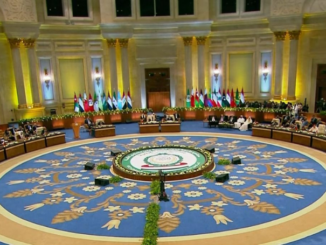
Ayham was arrested twice since the beginning of 2023. The first arrest lasted one day, and he was released from prison on bail. The second time was in late March of this year. He spent an entire month in jail, in addition to nine months of house arrest at the moment of his release.
Ayham Al-Hadra, 14, didn’t expect his summer vacation to start with being confined to his house. He spent previous weeks making plans with his friends for the perfect summer.
However, the Israeli court’s decision to put Ayham under house arrest for a full nine months shattered all his dreams. He now spends his days merely looking out the window with tears in his eyes because of the harsh restrictions imposed on him.
House Arrest, according to Israel
House arrest is a type of detention used by Israel against the citizens in Jerusalem and Palestinians in Palestine ‘48, today’s Israel. It largely targets children under the age of 18, activists, and influencers. It is used as an alternative to actual imprisonment, but its psychological effects are detrimental, as these citizens are prevented from leaving their homes and carrying out their daily routines.
Ayham’s mother is also living through difficult times, as she has sadly become her son’s jailer. In fact, the Israeli court announced her as the surety for his house arrest.
“I feel very sad when I see him sitting near the window and looking outside,” Ayham’s mother told The Palestine Chronicle. “It breaks my heart when he sees his friends playing while he is locked in the house. I see tears running down on his cheeks and I start crying too.”
Imprisoned in Ramadan
Ayham was arrested twice since the beginning of 2023. The first arrest lasted one day, and he was released from prison on bail. The second time was in late March of this year. He spent an entire month in jail, in addition to nine months of house arrest at the moment of his release.
His mother told us that Ayham’s imprisonment took place during the holy month of Ramadan and the following holiday, the Eid. This made the family feel his absence even more.
“I missed him a lot, and I did not feel the beauty of the month of Ramadan or Eid. I kept thinking about how he fasted alone and ate all by himself. Everything was cold in his absence,” his mother said.
‘Worse than Prison’
Ayham underwent several trials in Israeli courts. The last of them ended with his release from prison, followed by house arrest and a fine.
Though unfair to the boy, the family was relatively happy with this decision, as the priority for them was that their son returned home.
However, with the passing of days, the boy began to feel bored and asked his parents to leave the house. Unfortunately, taking one step outside the door would mean being arrested again.
“This type of detention is very difficult for him. He feels bored and sometimes frustrated. He has become agitated and initiates problems with his brothers,” Ayham’s mother said. “He has also become less talkative and less involved in family gatherings.”
This is another dark side of this type of detention, as it not only affects the boys who are under house arrest, but rather their whole family.
“Ayham was also prevented from going to school, which was very difficult for him. During the past two weeks, he had final exams, so we submitted a special request to the Israeli police and the court to approve his going to school to take exams,” his mother explained.
“Every day, I would accompany him to school, wait for him outside, and return home with him to finish his imprisonment.”
The life of the al-Hadra family has been turned upside down. For a whole month, his mother was unable to go out to work because of her confinement with him.
With the start of the new school year next September, the mother will have to accompany him to school every day.
“Sometimes he tells me that going back to actual prison would be more merciful. I feel sorry for him,” she said.
Canceling Childhood
Since the beginning of the year, Israel has detained 25 Palestinian children in Jerusalem under the age of 12 and 340 children between the ages of 12-18, according to the Jerusalem Prisoners’ Families Committee.
The head of the committee, Amjad Abu Asab, told the Palestine Chronicle that most of these children have been ‘released to house arrest’, which is of two types: One for a given period of time and the other for an indefinite period. Sometimes, the detainees are even deported outside their hometowns, to the homes of one of their relatives.
According to Abu Asab, Israel uses house arrest as a collective punishment targeting the child and his family. There are very harsh repercussions for them, especially since the house turns into a prison and the parents turn into jailers after they sign large financial pledges to release their son from the actual prison. At the moment of signing, they only want their children to be released from prison.
“It has been proven through experience that the house arrest can be even more impactful on the lives of detainees, especially as in actual prison they live with their companions,” Abu Asab said.
“To the contrary, when they are under house arrest, their family and friends can still live normal lives. But these children see their friends going out to the playground, going shopping and to school. For them, freedom is simply unattainable”.
The psychological impact of house confinement is very severe on a child, as it leads to emotional damage and the destruction of his social relationships.
The child tends to become rebellious against his family. Some have even tried to commit suicide, and others have assaulted their parents. They become isolated and aggressive. All of this leads to physical effects as well such as hair loss and involuntary urination, according to Abu Asab.
Moreover, the Israeli courts do not always specify the duration of house arrest when they sentence Palestinian children. Therefore, some minors spend years under house arrest even if they were sentenced to two months of actual imprisonment.
“Most parents feel distressed and exhausted because they must stay with the child,” Abu Asab continued.
“Throughout the whole period, the child is often deprived of his right to education. Basically, the Israeli authorities take their childhood away,” he concluded.

– Fayha’ Shalash is a Ramallah-based Palestinian journalist. She graduated from Birzeit University in 2008 and she has been working as a reporter and broadcaster ever since. Her articles appeared in several online publications. She contributed this article to The Palestine Chronicle.







